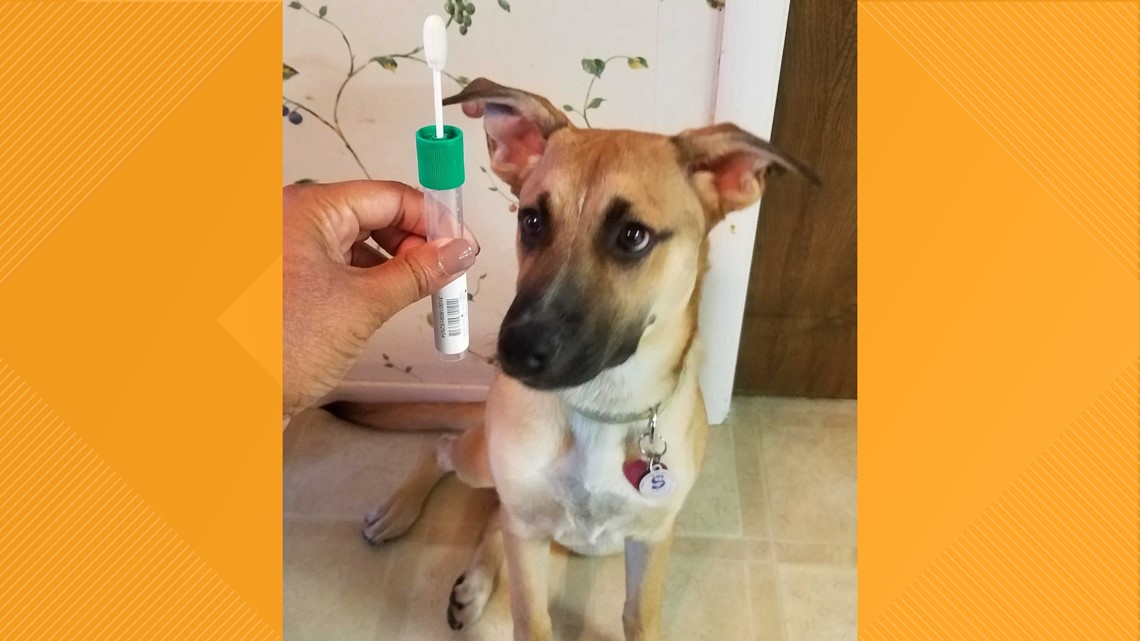SACRAMENTO, Calif. — In the last few years, genetic testing for dogs has increased in popularity with the availability of at-home DNA tests.
Tests can be bought online from the company's website or other pet supply providers like Petco, Chewy and Target.
Three popular at-home breed tests are:
- Embark - $129
- Wisdom Panel - $84.99
- DNA My Dog - $68.99 or $44.99 on Target's website
If you think that $129 is a lot to spend to find out information about your dog, you probably wouldn't believe that people pay even more to find out potential health risks for their pet.
Aimee Llewellyn-Zaidi, project director of the International Partnership for Dogs' Harmonization of Genetic Testing in Dogs, said that the range in prices for dog DNA tests can be from $40 to $300, roughly.
Llewellyn-Zaidi said that the price of the tests is usually driven by the type and extensiveness of the test being done.
Whether you want to test your dog's DNA because you are interested in finding out their breed history or want to find out if your dog is at risk for health problems, Llewellyn-Zaidi and Sharon Albright, spokesperson for the American Canine Health Foundation, said that there are some pros and cons owners need to think about.
Pros
Llewellyn-Zaidi said that finding out what your pup may or may not be can be interesting. Albright said that the interest factor can be enough of a reason alone for people to test their dog's DNA.
"If you want to see what your mixed-breed dog is, then there is nothing wrong with that," Albright said.
If owners opt for a health test, Albright said that these tests can be good for showing people if they need to make lifestyle or food changes for their dogs.
Llewellyn-Zaidi said that DNA tests are good for people that plan on breeding dogs and are concerned about a health risk for their dog. She said that in both of these cases the dog owner should make sure to consult with their veterinarian.
Cons
Llewellyn-Zaidi said that one of the downsides is that the kits often use a large amount of information to compile the results which can result in information overload when receiving potential health risks.
Albright said that dog owners should try not to worry too much when they receive the results.
Llewellyn-Zaidi explained that the tests, especially with mixed breed dogs, can show risk factors that may not pertain to your dog but pertain to the breed the test says your dog is.
"It is harder to figure out inheritance with mixed breeds when it comes to their health," Llewellyn-Zaidi said.
No matter what, Albright and Llewellyn-Zaidi both suggest that owners stay in contact with their vet and talk to their vet about any concerns the owner may have.
Llewellyn-Zaidi also said that at times the breed results may not be 100% accurate.
How dog DNA tests work:
1. Collect your dog's DNA.
If your dog doesn't like people touching their mouth, this part might be hard. Many DNA tests require collecting your dog's saliva.


2. Send the results in.
Some of the tests suggest using the box that the test came in to send the results back. Usually, you can just drop them in any mailbox.


3. Wait two to four weeks for the results.
Depending on how extensive the lab tests and methods the company uses the results could come back to the owner within two to four weeks.
Results could include possible breed types, health risks, genetic traits and genetic markers.
Some tests will send their results via mail and others will have you create an account with their site and send you the results electronically.
RELATED:

